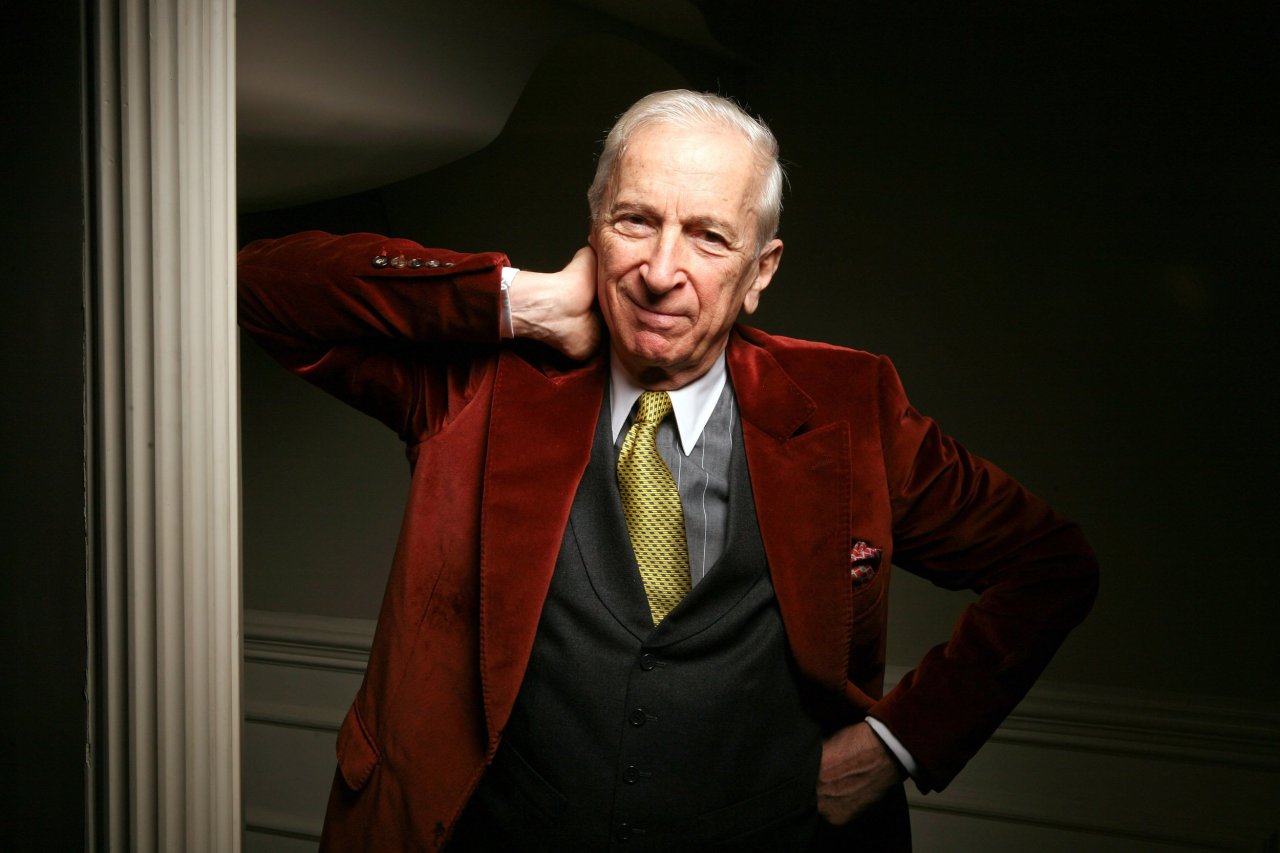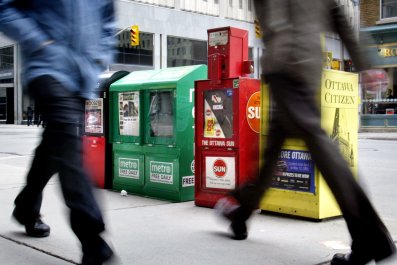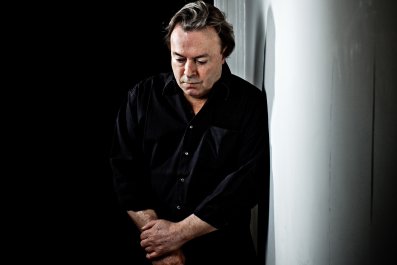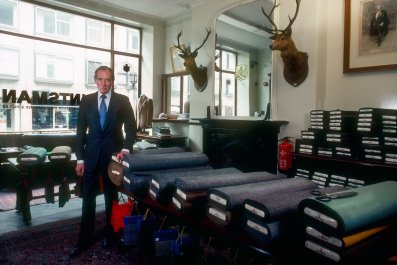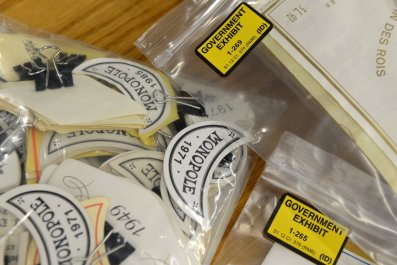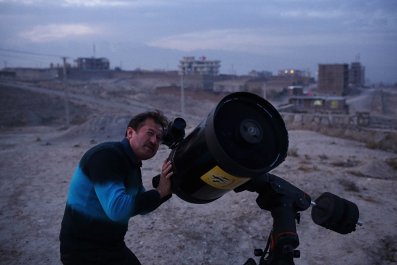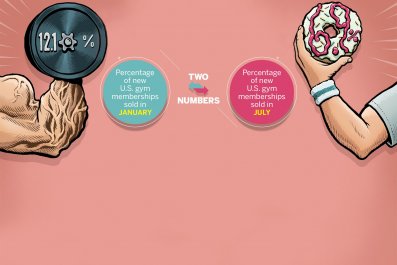Gay Talese, who has written about opera divas, bricklayers, hookers and ballplayers, can probably hold a riveting conversation with anyone. For over 50 years, Talese has been patiently instilling trust in his subjects, gently nudging them into revealing their most guarded secrets (which, if Thy Neighbor's Wife, his book about post-1950s sexuality and adultery, is any indication, are often scandalous). Given this lifetime of expertly steering conversations, getting Talese to reveal secrets in a short interview is impossible. He deftly deflects questions he doesn't want to answer with stories that seem related but leave his interrogator entertainingly thwarted.
This skill is what's kept Talese's mystique intact five decades after the publication of "Frank Sinatra Has a Cold," his revered profile-at-a-distance for Esquire. "Cold" was republished in December as a Taschen coffee-table book for Sinatra's centennial, boasting Phil Stern photographs and scans of Talese's outlines of the story, famously scrawled on full-sized shirt boards. It should give curious fans their fill of the writer—at least until April, when his latest book, about voyeurism, hits shelves.
Talese himself isn't so much a voyeur as he is an expert witness, with a talent for asking revelatory questions. Exhibit A: When I first sit down to interview him at his palatial home on New York City's Upper East Side one brisk December evening, he folds his hands over his tweed pants, straightens his mustard tie and opens with: "Tell me all of your complaints." Exhibit B: Shortly after we begin talking, the phone rings. He asks if he can pick up the phone, and when I nod yes, he asks his old friend—it's Joel Grey, of Cabaret fame—"Tell me what I can do to make you happy."
The veteran writer says he learned the art of talking from his mother, a Brooklyn-bred child of Italian immigrants who owned a dress shop in his hometown of Ocean City, New Jersey. "She was a very good person to draw out people," he says. "And not to interrupt, and to always be very courteous." Talese remembers his father, a tailor, as a perfectionist, often refitting and reshaping fabrics until they were flawless. "That craftsmanship I affiliated with my research and the care in the writing," he says.
Yet he's modest about the most obvious result of his father's influence: his distinctive style. Since the age of 10, Talese has rarely been seen without an expertly tailored suit, finished with a jaunty hat or colorful scarf.
Talese's career is full of moments where he has gotten ordinary people to reveal extraordinary secrets to him. "A lot of that comes from knowing how to talk to people. How to make yourself believable, and then they trust you," he says. Even when discussing something as touchy as adultery, he says that he made it work because he wrote "in a way that wouldn't make anybody feel worse or more embarrassed" and by using "very soft, careful language that can suggest something."
While he's a journalist who's expressed many misgivings about journalism, he often waxes on the short story form instead. So why not just write fiction? "I want to steal the art of the fiction writer, and the storytelling technique, and bring it to what I do," he tells Newsweek. "I'm much more interested in fiction as sources of comfort and sources of education and sources of inspiration because it's all about writing in fiction."
That approach puzzled his editors at The New York Times, where he served as a sports reporter before taking on a contracted series of famed Esquire pieces (Sinatra included) in 1965. "At first, editors didn't like what I was doing because they thought I was making it up," he says. "They said, 'Oh, this guy's piping it.'"
He didn't budge, though, and soon developed a style that reads more like a novella than a newspaper article. But Talese is quick to add that while he's still got stories in him, he has no inclination to switch to fiction anytime soon. "There are so many good short story writers and novelists. Who needs another one?"
Sure, he has a steady rotation of papers and magazines delivered to his doorstep, among them The Wall Street Journal and Vanity Fair (both of which he receives free of charge), as well as The New Yorker and The New York Times (both of which he pays for). But for a journalist, Talese has many misgivings about journalism. For one thing, in the introduction to his Taschen book—and again at an event at the Strand bookstore in early December, in which he talked about the Sinatra profile—he rails against writers carrying digital recorders in interviews, writing that transcriptions are often "once-over-light dialogue that—while perhaps symptomatic of a society permeated by fast-food, computerized, bottom line, impersonalized workmanship—too frequently reduces the once artful craft of magazine writing to the level of talk radio on paper."
Of course, Talese comes from the halcyon days of magazine writing, when reporters were often given months to work on pieces, and lavish expense accounts were the status quo (Talese also notes in the Taschen book that he racked up a cool $5,000 in expenses while working on the Sinatra profile, which at that point wasn't even a concrete profile anymore, given his lack of access to Sinatra). So Talese's admirable interviewing strategy—which involves asking people to rework their own quotes as they say them, asking them the same question four or five times, and only taking sparse notes on his distinctive shirt boards—has been critical for him in drawing stories out of people but often seems unsustainable in the digital media sphere.
Admittedly, it's challenging to know what is sustainable in journalism. And while it's hard for even Gay Talese to predict, he's certainly right in noting that contemporary journalism lacks different perspectives. "Journalism is pretty empty and weak now anyway, and it's because part of it is, there's not an outsider's point of view," he says, noting the lack of Muslim perspectives in the media amid pernicious Islamophobia.
Several times during our conversation, Talese mentions that he, a first-generation American with Italian parents, always contended with a sense of outsiderness. But it's the perspective of looking in that gave him an edge as a journalist, he says. "Those overlooked people, being an outsider myself, I directed my attention to them," he says. "Because I saw a lot of myself in those people."



